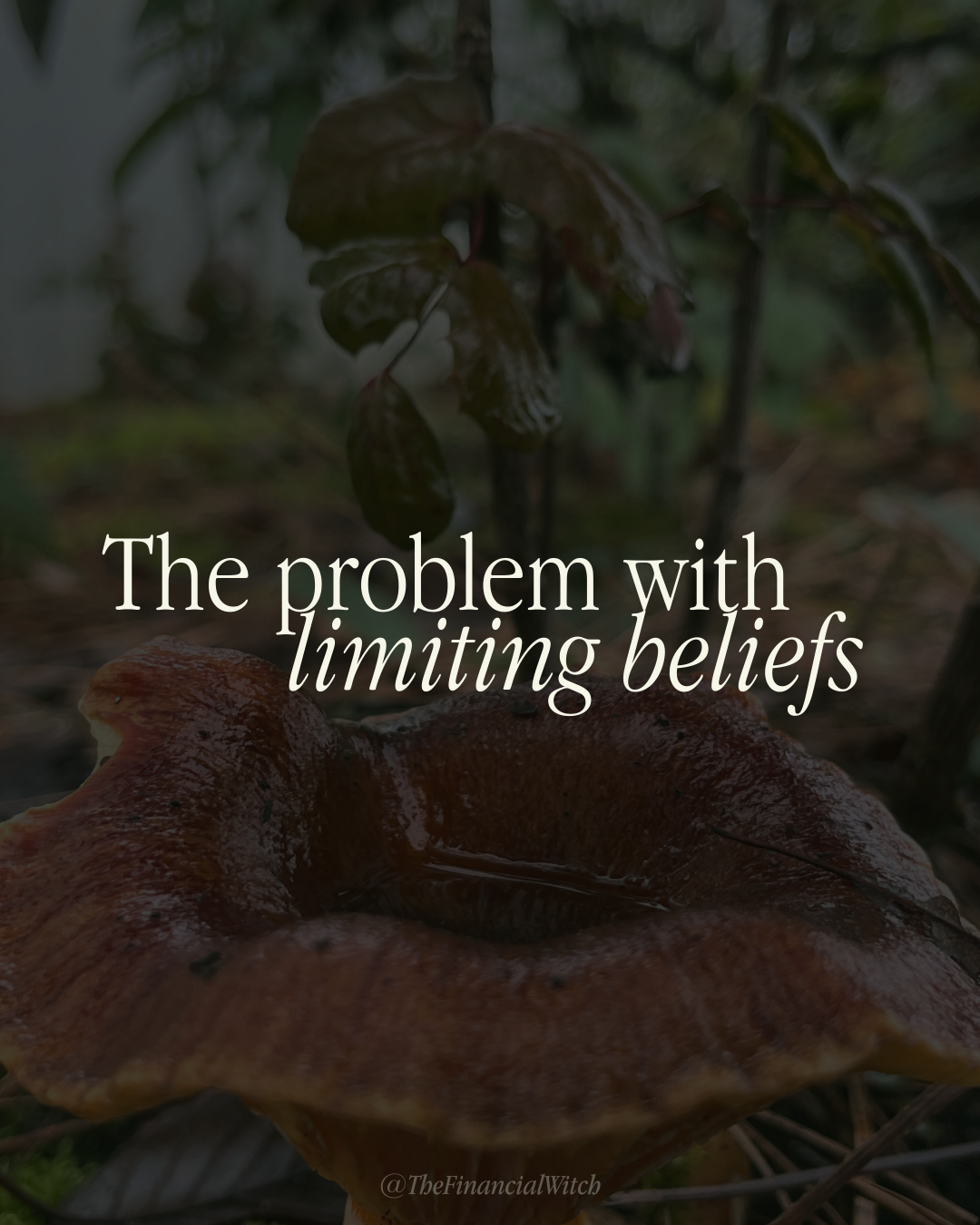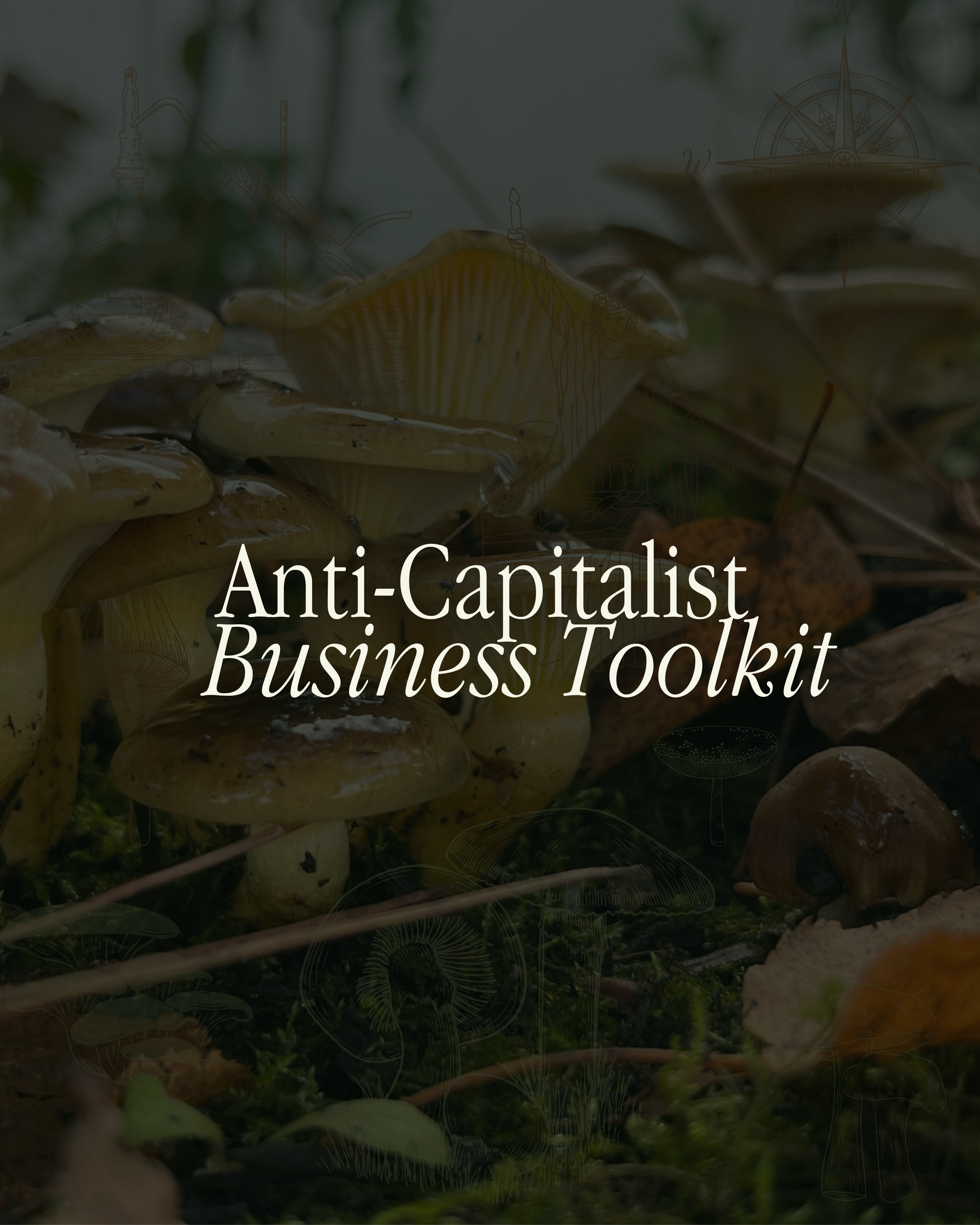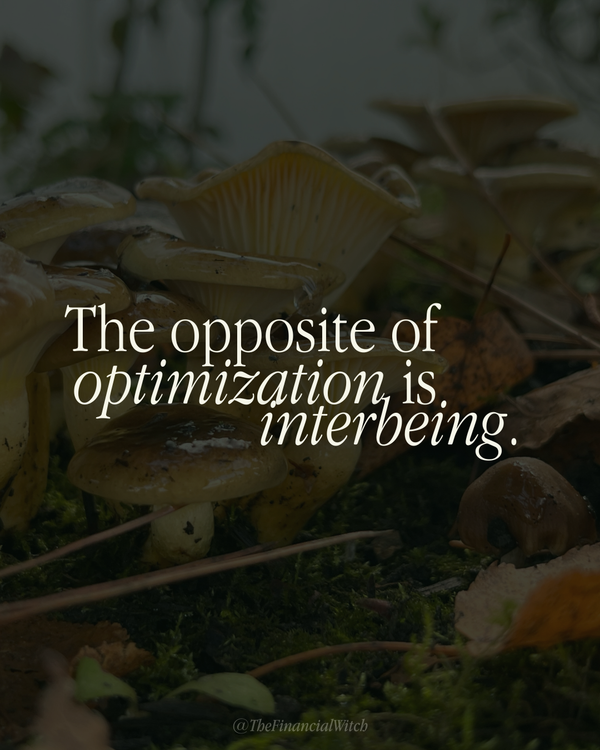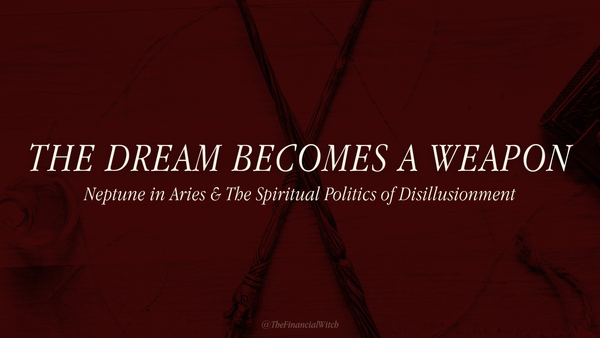The problem with limiting beliefs
Concepts like limiting beliefs and self-sabotage explain the results of the problem, but misattribute the cause of it.

Why don’t you believe you can have what you want? Why don’t you believe you can leave the situation you’re in? These are questions that get thrown around often in the manifestation industrial complex, usually as an accusation rather than an inquiry. The implication is that the issue is not external circumstances but internal: a matter of belief, of mindset, of self-sabotage. But what if that framing itself is flawed? What if we are misdiagnosing the problem entirely? If we accept that limiting beliefs are just self-generated illusions, arising from nowhere and simply needing to be eradicated, then we open the door to shame. Because if the only thing standing between you and your desires is you, then the problem remains you.
Fix yourself, we’re told, and the material world will rearrange itself in your favor. But when you live under a system that profits from your exhaustion, your compliance, and your willingness to internalize its failures as your own, maybe you were never the problem at all.
Personal development under capitalism presents an illusion of control while reinforcing shame. The manifestation industrial complex sells the idea that structural limitations can be transcended through sheer force of will. Saying affirmations and making vision boards feels like doing something, and doing something is always preferable to sitting with the possibility that control over our reality is far more limited than we’ve been led to believe.
Concepts like limiting beliefs and self-sabotage misidentify the cause of the problem. They describe the effects of struggle while pinning the responsibility for that struggle on the individual. The real issue is not personal failing, but a system that convinces people their failures are personal while their successes are systemic.
Survival of the fittest was never about personal strength or determination; it was always about how well-suited an organism’s environment is to its needs. We are all organisms living within an environment that is actively hostile to our needs.
Capitalism is not designed to meet the needs of the many—it is built to consolidate power and resources into the hands of the few. It manufactures scarcity not just of material resources but of trust, of time, of rest, of belief in each other. We don’t trust each other because we’ve been taught to compete. We don’t trust ourselves because we’ve been told our desires are dangerous and our suffering is self-inflicted.
Shame functions as an inhibitor of agency. It keeps people stagnant, convinced that their struggles are a result of personal failing rather than a natural response to untenable conditions. It is no coincidence that capitalism weaponizes shame so effectively. A person consumed by shame does not act, does not demand, does not question.
For those trying to run a business under capitalism, shame takes on a different shape. It creeps in when anti-capitalist values clash with the desire for financial security, when profitability feels like complicity. The pressure to succeed financially while resisting exploitative systems can create a kind of double bind: if you struggle, it's because you're failing under capitalism, but if you succeed, you're participating in it. Neoliberalism thrives on this tension, whispering that ethical business is an illusion and that survival requires a quiet surrender to the very structures we critique.
People defend capitalism by calling it “natural,” as if that justifies its harm. But “natural” does not mean good. Competition exists in the natural world, but so do pandemics, mass extinctions, and environmental collapse. Capitalism is not natural; it is a human-made system that exploits, extracts, and alienates. Cooperation, mutual aid, and the collective instinct to care for one another—these are just as natural and, arguably, far more essential to survival.
At some point, the manifestation girlies need to acknowledge that their beliefs are just repackaged neoliberalism, wrapped in pastel aesthetics and smelling of sage. “Your thoughts create your reality” is a comforting illusion when the reality outside feels uncontrollable. But reality is not created by thoughts alone; it is shaped by actions, by history, by policy, by the very real ways that systems distribute power and resources.
Neoliberalism is an economic & political ideology that prioritizes free markets, privatization, and deregulation while shifting responsibility for systemic issues onto individuals. It thrives on the belief that personal success or failure is a direct result of one’s individual efforts, rather than the product of larger social and economic forces. This logic seeps into self-help and manifestation culture, reinforcing the idea that if someone is struggling, it’s because they aren’t trying hard enough or thinking the right thoughts.
The allure of these beliefs isn’t just their simplicity, it’s also about how seamlessly they map onto the existing structures of capitalism. Capitalism, lacking any natural topography of its own, must latch onto existing ideas and structures in order to sustain itself. Here, individual responsibility is emphasized over collective action. Success and failure are moralized. People internalize the idea that if they don’t have what they want, it’s because they didn’t think hard enough, didn’t vibrate at the right frequency, didn’t earn abundance the way the system demands. Shame seeps in through the cracks, disguised as self-improvement, convincing people that their suffering is a reflection of their own inadequacy rather than the conditions imposed on them.
For business owners with anti-capitalist values, shame is especially insidious. There’s a guilt that accompanies charging for labor, a hesitation to claim financial success as valid, a fear that making money is a betrayal of one’s ethics. But refusing to participate in the worst excesses of capitalism does not mean existing outside of it. The idea that there is a way to engage with money that is entirely free from the system is another illusion—one that only deepens the paralysis of shame. If capitalism forces participation in order to survive, then the question is not if you engage with it, but how you do so with intention.
If change feels impossible, if manifestation isn’t working, if mindset shifts aren’t altering material circumstances, the problem isn’t you. It’s the conditions you’ve been forced to navigate. And none of it is your fault.
The real work is not fixing yourself. It is recognizing how shame is wielded as a tool to keep you compliant, to make you believe that your suffering is a personal failure rather than a deliberate outcome of an exploitative system.
Shame says, you are the problem. Awareness asks, who benefits when you believe that?

If this conversation resonates with you, I invite you to listen to the free audio series I created for people like you. Anti-Capitalist Business Toolkit is an examination of shame, survival, contradictions, mycelial networks, and the three things you need to create a symbiotic business under capitalism.
Thank you for reading!
Your ongoing support makes it possible to continue writing, podcasting, & offering more sliding scale and no-cost offerings in the future. To become a Cosmic Co-Op member, click here.
Share this publication: like, comment, reply to this email, or link me on your social media! I love to receive thoughtful feedback and continue conversations beyond this platform--especially in our community Discord server.
If you would like to pay for a subscription, but don’t want to do so through Ghost, you can pay via my Venmo. If you’d like a paid subscription, but can’t afford it, please reach out to me and I’ll add you—no questions asked.



